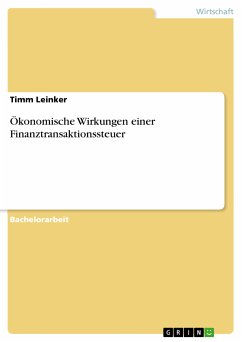Master's Thesis from the year 2019 in the subject Economics - Monetary theory and policy, grade: 2,0, University of Potsdam, language: English, abstract: This thesis explores and analyses the technical and economic factors that determine the potential of blockchain technology for economy and society and their interactions. At the technical level, blockchain technology is portrayed as a combination of different base technologies. It enables new, potentially disruptive applications by providing an efficient technical solution for the fundamental double-spending problem. Based on these findings, blockchain technology is analyzed regarding a new Techno-economic paradigm. However, this does not (yet) appear to be the case, at least from an isolated perspective. From an institutional economics perspective, blockchain technology proves to be a rule-based system and thus a basis for alternative institutions. On the one hand, these enable new forms of economic interaction and coordination and, on the other hand, these are subject to novel governance mechanisms. It turns out that these decentralized blockchain-based forms can lead to higher efficiency in systems that have been dependent on traditional intermediaries up to now due to lower transaction costs. In contrast, there emerge new intermediaries within the blockchain ecosystem, which reminds of traditional schemes.
Dieser Download kann aus rechtlichen Gründen nur mit Rechnungsadresse in A, B, BG, CY, CZ, D, DK, EW, E, FIN, F, GR, HR, H, IRL, I, LT, L, LR, M, NL, PL, P, R, S, SLO, SK ausgeliefert werden.









